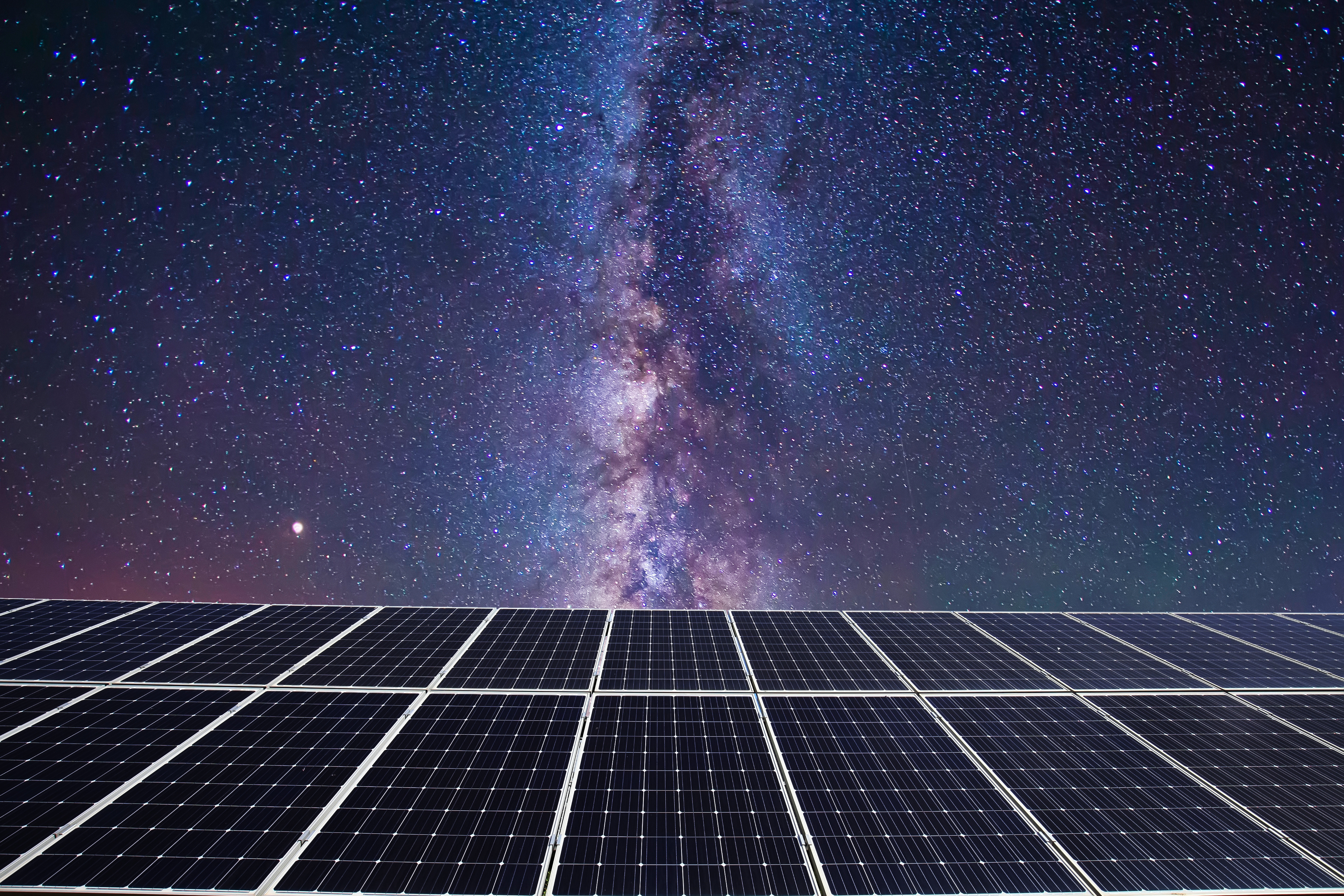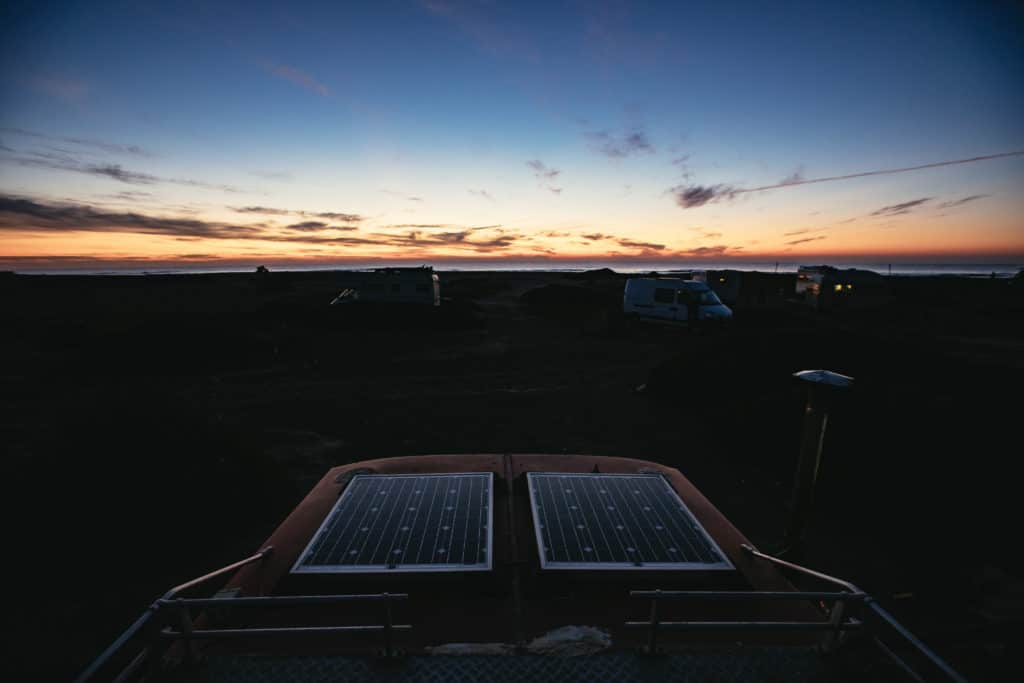
Solar panels use the sun to power your home. Yet, for about 12 hours everyday the sun does not even shine. Powering a home on only solar power would mean you must take into consideration the time the sun is down, or the clouds are out.
Solar panels use sunlight to generate electricity and that does not happen at night. Without sunlight, they will not generate electricity, yet there are still effective ways they can help power your home. Net metering and solar batteries allow electricity from your solar panels to help you even when the sun is down.
Therefore, even though your solar panels are taking a rest at night, you can still have access to their power. Solar panels, depending upon which kind and how many, will generally produce more electricity than you will need in your home on a given day. That excess electricity is what holds the secret to powering you home at night!
Solar Batteries
Solar batteries are you a great option to help you have access to that extra electricity. Simply put, solar batteries allow the excess power to be stored in a battery that can feed power to your home when the solar panels are stagnant. There is a lot of information available about batteries and they will enhance your solar energy system greatly.
First, there are 2 different types of batteries. AC (Alternating Current) and DC (Direct Current). Most batteries are charged by DC power, but your house is fed by AC power. This means that either within the battery, or a separate inverter will convert the stored energy before it enters your home. Most solar batteries are DC, but if you see one claiming to be AC, it means that it inverts the power within the battery!
Generally, batteries cost anywhere from $6,000 to $12,000 dollars. Sometimes that includes the installation while other times it does not. Installation and any other needed equipment like an inverter and extra wiring would add to the cost. When added with the price of solar panels and the installation fees, the price for such a investment looks daunting. While it does cost a lot at first, the costs decrease after installation. As a matter of fact, it will cut down or climate your power bill, and after they are installed, there are not any further costs except the occasional maintenance needs. Solar panels, and a solar battery make for a good long term benefit.
There are a couple other aspects to consider as you begin looking into solar batteries. The power and capacity ratings, the DOD, and the efficiency. Each of these are aspects about batteries that may vary from brand to brand. The power rating is how much power the battery can feed your home at a given time, and the capacity rating is how much power you battery can hold. These two ratings directly affect one another and when looked at through the eyes of the following example seem to make more sense.
“Batteries with a high capacity and a low power rating are useful as emergency backup generators, as they can power a few important appliances, like a refrigerator or a washing machine, for a prolonged period of time. A battery with a low capacity and a high power rating will be able to power the whole house, but only for a few hours because there is less electricity stored in the battery” source. Depending upon which is more important to you, you can choose a higher capacity, or a higher power rating.
Lastly, the DOD (Depth of Discharge) “is the percentage that a battery has been discharged relative to the total capacity of the battery” source. It is handy to have a higher DOD because charging the battery will prove to be less of a pain. The efficiency of a battery is determined by its ability to store energy in comparison to how much energy it took to store it. Obviously you want a more efficient battery so it doesn’t use all the stored energy to store energy.
Batteries also have the capacity to become full! Once your house is fully supplied with power, and you battery is full, the excess power begins to be filtered back into the power gird, which brings us to net metering!
Net Metering
Net metering is the process in which you are only billed by the power company for the “net” energy you use each month. That “net” energy is the difference between the energy you produce with your panels, and the energy consumed by your home source. In essence, this is what brings down or eliminates your electricity and power bills. By you giving your excess power to the grid, you have to pay less for your help. Many people will use their solar panels during the day, and switch to the power grid at night, eliminating the need for solar batteries. Often times, they are able to give more in the day than what they use at night and therefore are compensated for it. This also goes if you have a battery that is full, it will give excess to the power company, and you may be able to just use your battery at night. This is only possible though, if you are connected to the power gird. It is possible to go completely “off grid” and not have access to, or be able to give back to the power grid.
Net metering is helpful for the overall community as well, not only are you allowing neighbors to use the power you are generating, but you are helping to supply more jobs and boost the economy. Because solar panels have become such a big hit in the last decade, it is a demanding and growing industry that you are supporting.

Overall, solar panels don’t generate electricity at night because the sun is not out, but with these two methods, you can still have access to the power they are able to generate as they see the sun!